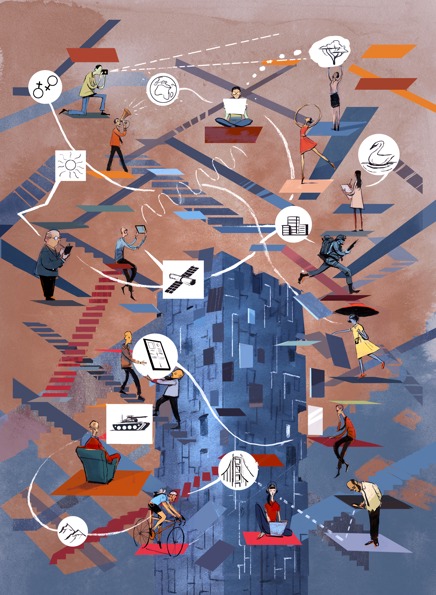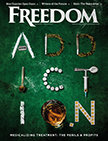The Challenges of a New Media World

Not that long ago, ours was a shared experience, thanks to mass media. We got our local news from a respected newspaper and our national and world news from one of the three network television evening broadcasts.
But beginning in the 1980s with an explosion of new radio formats and hundreds of microtargeted cable TV channels, the media landscape changed. In the 1990s, the Internet crowded the scene with tens of thousands of new content sites popping up every year.
Along the way, some network news divisions, never a profit center, came under the authority of entertainment executives. It was only a matter of time before those programmers (who may have been too smart for their own, and our, good) realized that to inform was worthy, but to entertain while informing was profitable. The lines were blurred, and infotainment was born. At the networks, hard news was hard to find.
Simultaneously, Internet-based information of every flavor was blossoming, and a new era in information gathering and dissemination was born. The explosion of news content comes not just from traditional operators such as NBC, The New York Times and The Associated Press. There are now hundreds—maybe thousands—of sites where facts may be subtly colored with a not-so-obvious agenda. It is easy to seek out and find the news we want versus the news we need, and human nature being what it is, we are likely to do just that. Instead of becoming informed, we risk having our previously held notions reinforced by news sites that cater to our existing opinions.
The solution lies in proactive news consumption. Today we must be our own editors and carefully consider each and every source. It is no longer enough to watch, listen and read passively. Now we must sample many sources and employ a critical eye. The pretty packages and slick production can lull us into a false sense of security. We must avoid staying in our comfort zones and question things as never before.
For the providers, the opportunity to reach millions anytime and anywhere is a boon to business and influence. The best ones, new and old, are continuing the important journalistic tradition of remaining detached from the outcome of the stories they’re reporting. A simple rule, really. But, here again, human nature is at odds. We like—we need—winners and losers. It’s hard to tell a story without rooting for a particular outcome, but it’s what great journalists do. It means they let stories carry them to a logical conclusion, or perhaps to no conclusion at all. Among the less scrupulous, nuanced or even outright agendas can be foisted upon the unsuspecting.
We all must take responsibility by asking ourselves if the rush to get a story out has compromised its accuracy. (In the last few years even the bigger institutions have fallen prey to the desire to be first: From NPR falsely reporting the death of Congresswoman Gabrielle Giffords to CNN inaccurately reporting that the Supreme Court had declared the new healthcare law unconstitutional.) This rush-to-publish has been driven by a 24-hour cable news culture that is the media equivalent of the great white shark: It’s always hungry, and it never sleeps.
We are witnessing an exciting democratization of reporting. Call it “citizens’ media,” a shorthand description of everything from a blogger in his mother’s basement to CNN’s iReport. Some sites feature both amateur and professional reporting. They may or may not have an agenda. Likewise, not all “professional” sites are motivated to tell a story objectively. The task of differentiating between fact and opinion now falls on the consumer.
The newly democratized media remove the middleman from the equation. In fact, middleman is too kind a euphemism. The word for the monolithic media companies is “gatekeeper,” and without one, religious organizations, clubs and groups of all kinds control their own messages. That’s what Freedom Magazine is about: The freedom to say what needs to be said, confident in the knowledge that its words—precisely as they were written—will reach its readers intact. Put another way: The palpable antagonism toward mainstream media derives from public perceptions that newspapers and broadcasting outlets are pushing some agendas and squashing others. Fairness has been replaced by slant. Institutions the media don’t like will be ridiculed and denigrated. Only by having multiple unfiltered voices like this one, and letting people make their own decisions, is truth served.
Two generations ago there were many, many mainstream media owners; today there’s a mere handful. Yet everyone now has the ability to become a “publisher.” Mainstream media are disintegrating because they were inherently monopolistic.
We have yet to establish a media model that allows many voices to be heard, while at the same time achieving societal agreement on broad issues. But it’s the doing that will create the broad consensus.
Jon Sinton is a writer, media consultant and media entrepreneur working in the radio, television and online industries. He began his professional career at age 17 in the newsroom of WBNS-TV, the CBS affiliate in Columbus, Ohio.





























